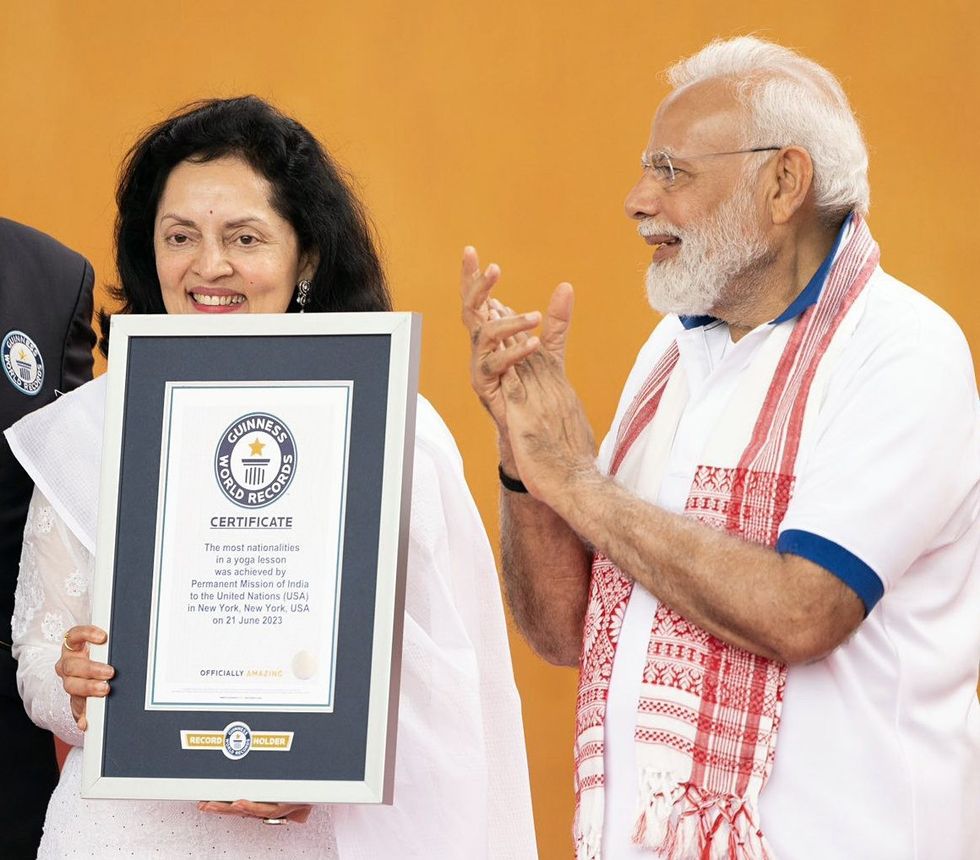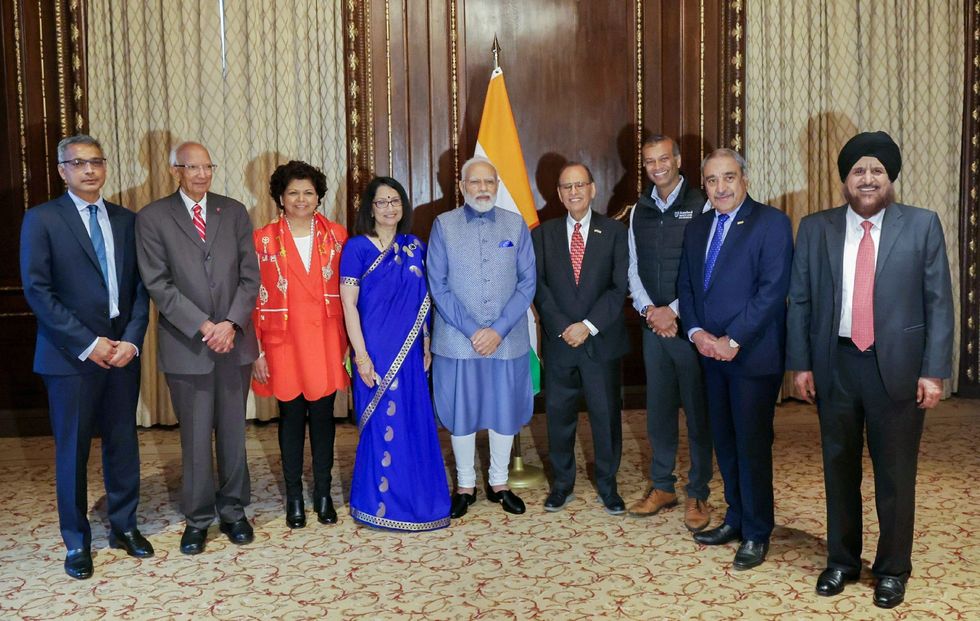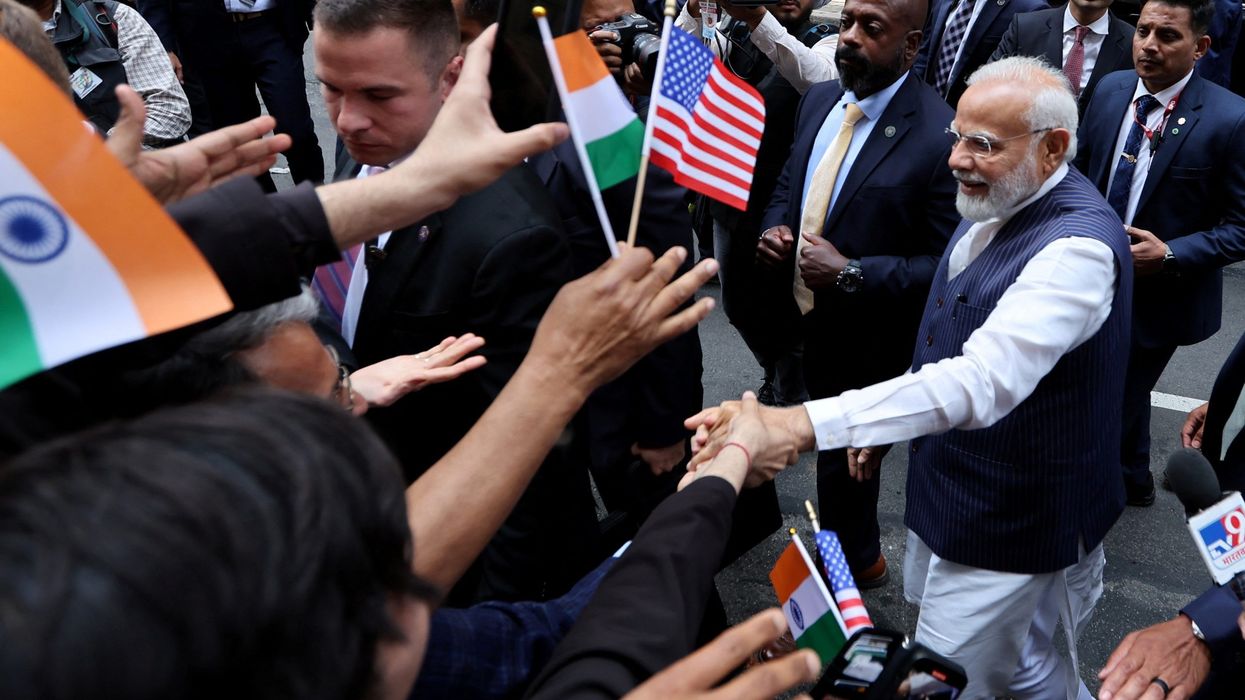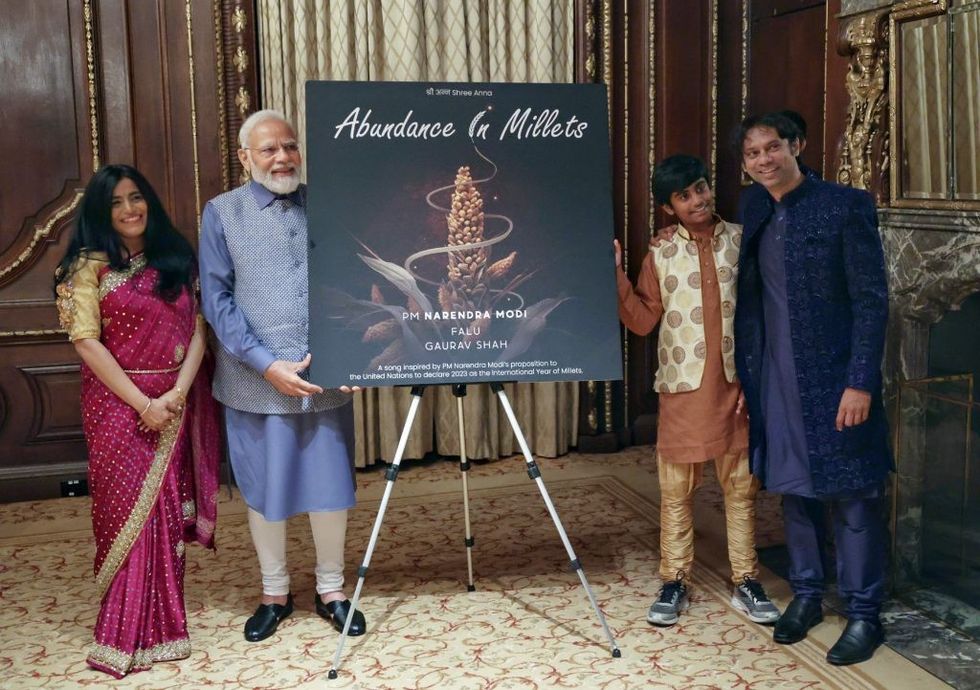Indian prime minister Narendra Modi’s visit to the United States has been marked by several key moments that will further strengthen bilateral relations and showcase India’s global influence. Modi is visiting the US from June 21-24 at the invitation of US President Joe Biden and first lady Jill Biden.
Modi’s visit to the US commenced in New York, where he took charge of leading the International Day of Yoga celebrations at the United Nations Headquarters on Wednesday (21).
During this event, he had the opportunity to meet Ambassador Ruchira Kamboj, the first Indian woman to hold the esteemed position of permanent representative/ambassador to the UN.

The International Yoga Day gathering also witnessed the participation of numerous yoga enthusiasts, resulting in the establishment of a new Guinness World Record, which was subsequently presented to Ambassador Kamboj.
Modi subsequently journeyed to Washington DC, where he was received with a ceremonial reception at the White House on Thursday (22).
During their meeting in Washington on Thursday, Modi had an in-person encounter with US vice-president Kamala Harris. As the highest-ranking Indian American in US history, Harris holds the distinction of being the first woman, first black, and first south Asian vice-president.
Acknowledging the significance of Harris's historic position, Modi extended his congratulations and extended an invitation for her to visit India.
On June 21, the Biden family had hosted an intimate dinner for Modi, a day before the much-in-demand State Dinner at the White House.
The historic visit, among other things includes an impressive welcome ceremony on the South Lawns on June 22, which later in the night would also become the venue for the state dinner.
The day of hectic activities on June 22 will conclude with a state dinner, for which a tent is likely to be pitched in the venue to accommodate the large number of invited guests.
The guest list is normally released on the evening of the state dinner. The attendees are expected to be the stakeholders of this relationship from across the US and from India.
While the number of guests invited for the State Dinner remains a closely guarded secret, the first lady has said that more than 400 guests have been invited for the dinner at the specially decorated pavilion on the South Lawn of the White House.
Several eminent Indian Americans serving in the Biden administration like Neera Tanden, Dr Vivek Murthy and Dr Rahul Gupta are expected to attend the state dinner.
On Thursday (22), Modi, upon receiving an invitation from US Congress Leaders, will address a joint sitting of the US Congress.
Additionally, it is expected that the five Indian American Congressman – Ami Bera, Raja Krishnamoorthi, Pramila Jayapal, Ro Khanna and Shri Thanedar – have been invited to the state dinner.
Indian-American Congressman Shri Thanedar would be escorting Modi to his historic joint address to the US Congress.
Modi is also scheduled to meet a prominent Indian-American personalities while he is in the US, both in New York and in Washington DC. This would include some prominent CEOs also.
Apart from official engagements, Modi’s itinerary includes several interactions with top CEOs, such as Indian Americans Satya Nadella from Microsoft, Sunder Pichai from Google and Raj Subramaniam from FedEx.
According to a source with knowledge of the matter, the CEO reception with more than 1,200 participants, including business leaders from US and Indian companies such as Tech Mahindra and Mastek, will be held on June 23 at Washington’s John F Kennedy Centre for the Performing Arts.
There is great enthusiasm among Indian-Americans about Modi’s visit and the prime minister will also meet members of the Indian diaspora.
New York [USA], June 21 (ANI): Prime Minister Narendra Modi meets with Indian-American Singer Falguni Shah, in New York, USA on Tuesday. (ANI Photo)Hundreds of people from across the country are preparing to travel to Washington DC next week to participate in various events related to the visit.
On June 21, hundreds of Indian-Americans gathered at the Lafayette Square Park in front of the White House to welcome Modi with a cultural extravaganza.
However, before that, Modi met in New York on Tuesday (20) with two dozen thought leaders from various walks of life, including Nobel laureates, economists, artists, scientists, scholars, entrepreneurs, academicians, and health sector experts including Falu Shah, Grammy Award-winning Indian-American singer.
Falu, who received the Grammy Award for Best Children’s Album in 2022 for her album A Colorful World, said the idea to write a song about millets came to her when she met Modi in New Delhi last year after her Grammy win.
The New York-based artist underlined that the song aims to promote millets and help farmers to grow more and try to end hunger in various parts of the world.
Modi also met a group of eminent US academics from diverse fields of agriculture, marketing, engineering, health, science and technology.
They discussed possibilities of enhancing research collaborations and two-way academic exchanges under India's New Education Policy, a press release said.

"In New York City, held an extensive interaction with a group of academics. They shared their views on how to further strengthen the education sector in India with a focus on skills and innovation. I talked about the transformative potential of our National Education Policy," Modi tweeted.
The academics who participated included Chandrika Tandon, chair of the board, NYU Tandon School of Engineering, Neeli Bendapudi, president of Pennsylvania State University, Pradeep Khosla, chancellor, University of California, San Diego, Satish Tripathi, president of the University at Buffalo, professor Jagmohan Raju, professor of Marketing, Wharton School of Business, University of Pennsylvania.





